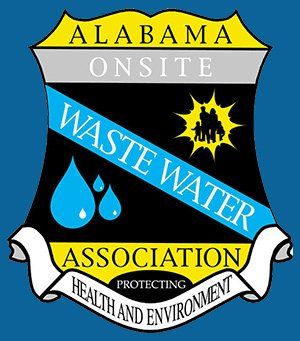THREE KEYS TO MAKING AN EASY TRANSITION TO A SEPTIC SYSTEM
- By Admin
- •
- 12 Dec, 2017
- •

Starting off on the right foot with your new septic system is essential - especially when you want a smooth transition into your new home. Fortunately, you'll just need to take a few basic steps to make sure this transition goes well. Here are three keys to making an easy transition as you move into a home with a septic system.
1. DON'T SKIMP ON THE INSPECTIONS
Septic systems are widely misunderstood. Even if the person you're buying the home from is perfectly honest and tells you that the septic system is fine, that doesn't mean it's truly fine. Many people don't realize that just because the system isn't acting up doesn't mean that it's in good health. Also, many homeowners who use a septic system don't realize that it needs to be pumped before it starts acting up.
If you're told that the system is fine, you should still hire an independent inspector to test out the system before you buy. Typical home inspections don't necessarily include the septic system, so you'll likely have to hire a septic expert for this step. This simple step can save you from a loss of thousands of dollars in some cases.
2. AVOID THESE NEWBIE MISTAKES
Because you're new to septic systems, you may not fully understand the way they work. This means it's easy to make newbie mistakes. Here are some common mistakes people make with septic systems.
Using Your Kitchen Sink Food Disposal
If your house doesn't have one, don't rush to install one - there's a good reason not to use a food disposal with a septic system. Ground-up food waste from the food disposal doesn't flow out to the leach field for dispersion but settles to the bottom of the septic tank with the other solid wastes.
This means that it fills up your tank much faster. In fact, using the food disposal could mean that your tank needs pumping twice as often, which could end up costing you hundreds of dollars per year in pumping fees.
Neglecting Maintenance
Your septic system won't tell you when the tank needs to be pumped. Yes, a tank that hasn't been pumped for a long time could start sending signs like slower drains and odd smells, but it's also possible that the leach field pipes will be clogged up before you notice any distress signals like septic backups in your house.
Clogged leach field pipes can sometimes be unclogged. If you're unlucky, you could need to replace the whole leach field pipe system - costing you up to tens of thousands of dollars.
3. BE KIND TO YOUR SEPTIC SYSTEM
As a rule, you should never put anything into the system that could clog a drain. Cotton swabs, baby wipes and other non-dissolvable items should never go into the septic system, even if you've been flushing them into the sewer system without incident for your entire life. These items could clog the leach field pipes and cause backups.
You should also avoid using chemical drain cleaners and flushing strong cleaning agents down your toilet. Your septic system isn't an excuse to avoid cleaning the bathroom, but it also can't handle large amounts of chemicals - such as a half-bottle of a cleaning product that you want to dispose of.
These three tips will give you a better chance of getting off to a good start with your septic system. By taking proper care of your septic system, you can ensure that it will continue to take care of you well into the future. If you need more information about septic services, feel free to contact the professionals at Allen Turner Septic Tank Service today.
Septic tanks are important for the treatment of wastewater treatment. Read this blog on the various aspects of septic tank replacement.
When you grow up in a house, you typically won't have a manual of what to flush down the toilet. Discover common family flushing traditions to avoid.
Septic systems provide an effective solution for wastewater. Read this blog about some considerations to think through before installing a septic system.
What shouldn't go into your septic system? Read this blog to learn what products should not enter your septic system through toilets or drains.
Many appliances in your home are the source of items that can damage your septic system. Discover some of those problematic appliances.
Washing laundry can affect your septic system’s operation. Consider the laundry tips from this blog post to protect your septic tank.
A septic system consists of components located underground that use natural techniques to treat wastewater. See the main types of septic systems for homes.
Septic tanks require proper care and maintenance to function correctly, and this can be complex if you have pets. See septic tank care tips for pet owners.
Maintenance costs for septic tanks can add up, but you do not have to spend a fortune. Learn how proper care can save you money on septic services.
For the best septic tank services, careful considerations are necessary. Discover a few qualities to look for in the septic tank company you hire.

